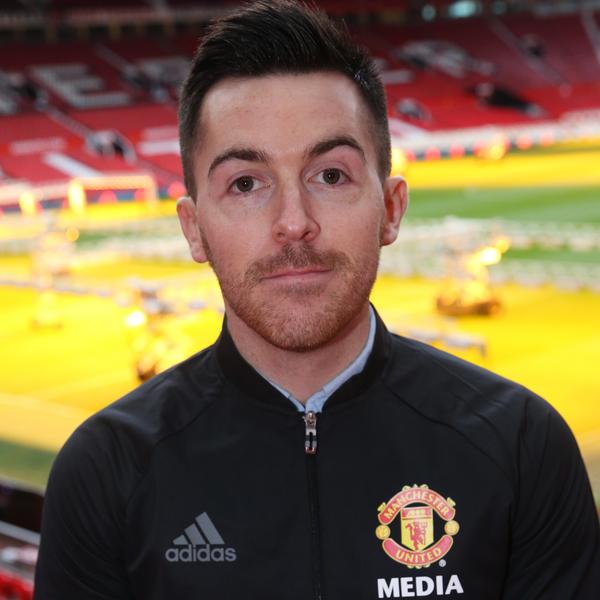On 29 July 1996, an iconic United career began
It is hard to believe, but, today, Ole Gunnar Solskjaer is celebrating the 25th anniversary of his transfer to Manchester United and the start of what continues to be an iconic Old Trafford career.
On 29 July 1996, the little-known Norwegian completed a shock move from Molde for a reported fee of £1.5million and joined as a fresh-faced bargain alongside fellow recruits Ronny Johnsen, Jordi Cruyff, Karel Poborsky and Raimond van der Gouw, posing for the famous photo shown below.
As we all know by now, Solskjaer went on to become one of our best and most popular strikers of all time, forging a reputation as a ‘super sub’ and scoring what is undoubtedly the most famous goal in United history – the winner in the 1999 Champions League final against Bayern Munich to clinch the Treble.
With his legendary status already secured, Ole’s playing career came to an end in 2007 due to injury and a coaching career beckoned. This was initially with the senior strikers and then within the Academy, which laid the foundation for his celebrated return as first-team manager, in December 2018.
Last weekend, it was announced that Solskjaer has signed a new contract as boss and is more determined than ever to bring success to Old Trafford, this season with the help of Jadon Sancho and prospective new signing Raphael Varane.
CELEBRATE WITH US ON THURSDAY
To mark his 25 years as a Red, we sat down with Ole for a feature-length interview that will be released on Thursday, starting at 08:00 BST with a series of standout stories from the conversation.
These individual tales provide fascinating answers to many burning questions:
Would Ole have signed if Alan Shearer had said yes?
Does he regret the infamous red card against Newcastle?
And which match still haunts him to this day?
There are also new insights into his relationships with Sir Alex Ferguson, Eric Cantona, Roy Keane, Wayne Rooney and Cristiano Ronaldo, to name just a few, plus his thoughts on why the future will hopefully be bright under his stewardship.
The Q&A will be available in full from 17:00 BST on Thursday, so remember that time because this interview is unmissable for all fans of United and the boss.
To start, we asked Ole how different he is now compared to the young boy who walked through the doors on 29 July 1996 and, as he admits, his journey has been nothing short of spectacular.
“Oh, there’s loads of differences,” he explains with a smile. “Now I can say I’m a man – you can see that by my hair, and my experiences. I walked in as a boy, a 23-year-old boy who was just starting out as a professional, and had played 18 months for Molde. Before that I had played for my local team in Kristiansund, so I’d only played one-and-a-half seasons at the top level in Norway.
“I made my debut as a 22-year-old in the Premier League in Norway so I was a very, very late developer. So the change is massive. All the experiences I’ve had – even though I was quietly confident then as well – I believed in myself but it was just the start of my journey. I couldn’t in my wildest dreams imagine sitting here now, 25 years on, having had the success I’ve had.”
Solskjaer's 25-year timeline
Our video tells the story of Ole's lengthy and glorious association with United...
HOW UNITED HAS CHANGED
A lot has happened between 1996 and 2021 in the history of our great club, yet Ole points out the values, expectations and levels of support are still the same.
“Back in those days, in 1996, we still felt we were the biggest club in Europe and in the world. Now, the world has moved on, technology, but the size of the club has just grown, I don’t know how many-fold. It’s so much easier to be connected to our fans as well. We see that more easily.
Ole’s top 10 goals: Do you agree?
TOP 10 GOALS | Happy 53rd birthday to the iconic Ole Gunnar Solskjaer...
“When I came in 1996, of course the last European Cup had been in 1968 so when we won it in 1999, it just moved us on. It escalated in 2008 and I think we now feel that we’re coming back.
“The values are still the same, but the size, the magnitude around it, the media attention… the world has changed. You just need to press a button on your phone and you can read three, four, five stories about Man United.”
Visit ManUtd.com and the United App on Thursday for more of Ole's anniversary interview.


1772034100778.png)

